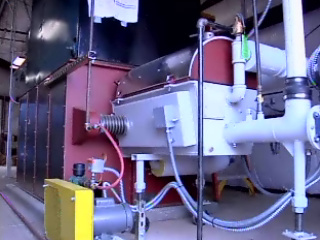http://crowncapitalmng.livejournal.com/
Princeton film festival explores broad range of environmental issues
Sometimes the best way to educate is to entertain; this has proven true by Princeton
Public Library for the seventh straight year.
Last weekend was the start of the annual Princeton Environmental Film Festival, the
festival features more than 30 films that explore environmental sustainability from a
wide range of perspectives. The film series will run from now through Feb. 10, with 13
days of free films for 2013.
“An Inconvenient Truth” and “Who Killed the Electric Car?” pave the way to the annual
festival. Curator Susan Conlon says the library was inspired to create the film festival
after the overwhelming success of two environmentally themed films.
“The festival is a way to bring these kinds of films to the community; to explore new
ideas and become aware of different perspectives,” Conlon says. “There are often more
than two sides to an issue, and these films really make you expand your thinking.”
It isn’t just the quantity of the film yet the quality as well, Conlon stresses that while
the majority of the films address environmental matters, every film was primarily
selected not just because it addressed a specific issue, but because it was a well-made,
entertaining film.
As diverse as the films may be, Conlon notes that they are all linked by a common
theme. This year’s films explore a wide range of topics and present perspectives from
literally around the world.
Princeton film festival explores broad range of environmental issues
Sometimes the best way to educate is to entertain; this has proven true by Princeton
Public Library for the seventh straight year.
Last weekend was the start of the annual Princeton Environmental Film Festival, the
festival features more than 30 films that explore environmental sustainability from a
wide range of perspectives. The film series will run from now through Feb. 10, with 13
days of free films for 2013.
“An Inconvenient Truth” and “Who Killed the Electric Car?” pave the way to the annual
festival. Curator Susan Conlon says the library was inspired to create the film festival
after the overwhelming success of two environmentally themed films.
“The festival is a way to bring these kinds of films to the community; to explore new
ideas and become aware of different perspectives,” Conlon says. “There are often more
than two sides to an issue, and these films really make you expand your thinking.”
It isn’t just the quantity of the film yet the quality as well, Conlon stresses that while
the majority of the films address environmental matters, every film was primarily
selected not just because it addressed a specific issue, but because it was a well-made,
entertaining film.
As diverse as the films may be, Conlon notes that they are all linked by a common
theme. This year’s films explore a wide range of topics and present perspectives from
literally around the world.


 RSS Feed
RSS Feed